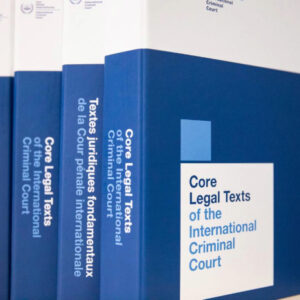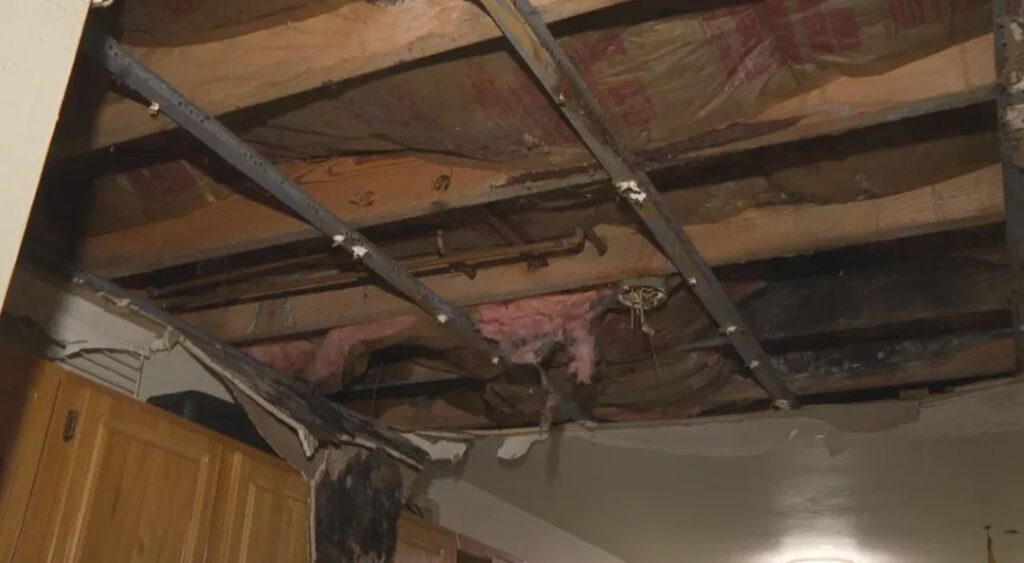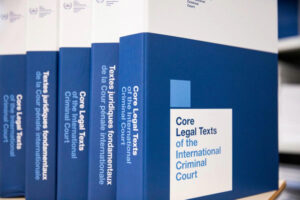In a harrowing turn of events, Danville resident Meshay Boyd, a mother of five, is urgently seeking assistance after a portion of her apartment ceiling suddenly collapsed—revealing a disturbing layer of black mold and putting her family’s health and safety at serious risk. WSET
A Frightening Morning
Early on Sunday morning, Boyd was startled by crackling sounds emanating from her kitchen. Initially unalarmed, she soon noticed her light fixture beginning to sag—seemingly the only thing holding the ceiling in place. Moments later, the ceiling gave way, collapsing entirely. WSET
Conditions Inside Are Dire
The collapse exposed widespread black mold—on insulation, wood panels, and even dripping from above. Boyd described the mold as pervasive and dangerous, stating:
“The mold, there’s a lot of black mold… it’s on the insulation, it’s on the wood panels, and then the insulation is leaking.” WSET
Despite reporting the issue to apartment management on Monday and providing photos, Boyd has received no follow-up or timeline for repairs. She voiced her frustration, particularly with her young children’s vulnerability:
“People still got little kids, newborns, kids that get easily sick and could die of stuff like that.” WSET
Tenant Rights: What the Law Says
The Woodside Village Apartments management declined to comment on the situation. Legal guidance, however, is clear: Virginia law mandates landlords must address hazardous conditions within 30 days of receiving written notice, or aid tenants in securing alternative housing. If neither occurs, tenants may have legal grounds to pursue lease termination or further action. WSET
Virginia Legal Aid Society’s managing attorney David Wilnow echoes this advice—urging Boyd to submit formal written notice and exploring legal remedies if the situation remains unresolved. WSET
Why This Story Matters
This situation casts a spotlight on the broader challenges faced by tenants, especially families on tight budgets, when landlords neglect basic health and safety standards. Black mold isn’t just a cosmetic concern—it can trigger severe respiratory and neurological symptoms, especially in children and immunocompromised individuals.
What’s Next for Ms. Boyd?
-
Submit written notice demanding immediate remediation or relocation assistance.
-
If the landlord remains unresponsive within 30 days, explore legal action or consider terminating the lease.
-
Document all interactions and maintain detailed records—as they may be critical in pursuing legal or advocacy support.
In Closing
Meshay Boyd and her children are currently living in perilous conditions. Their story is a sobering reminder: tenants need both legal protections and landlords who prioritize health and safety. We stand with Boyd and hope for swift action—so no family has to endure such risks.
What do you think? Should there be stronger enforcement of housing safety regulations? Have you or someone you know experienced similar neglect? Share your thoughts with Habari in the comments below.











More Stories
One Dead, Two Injured in Shooting Near ASU Campus
ICC Judges amend the Regulations of the Court to regulate motions for acquittal
U.S. Black Chambers, Inc. Statement on Supreme Court Decision Invalidating Tariffs Imposed Under IEEPA